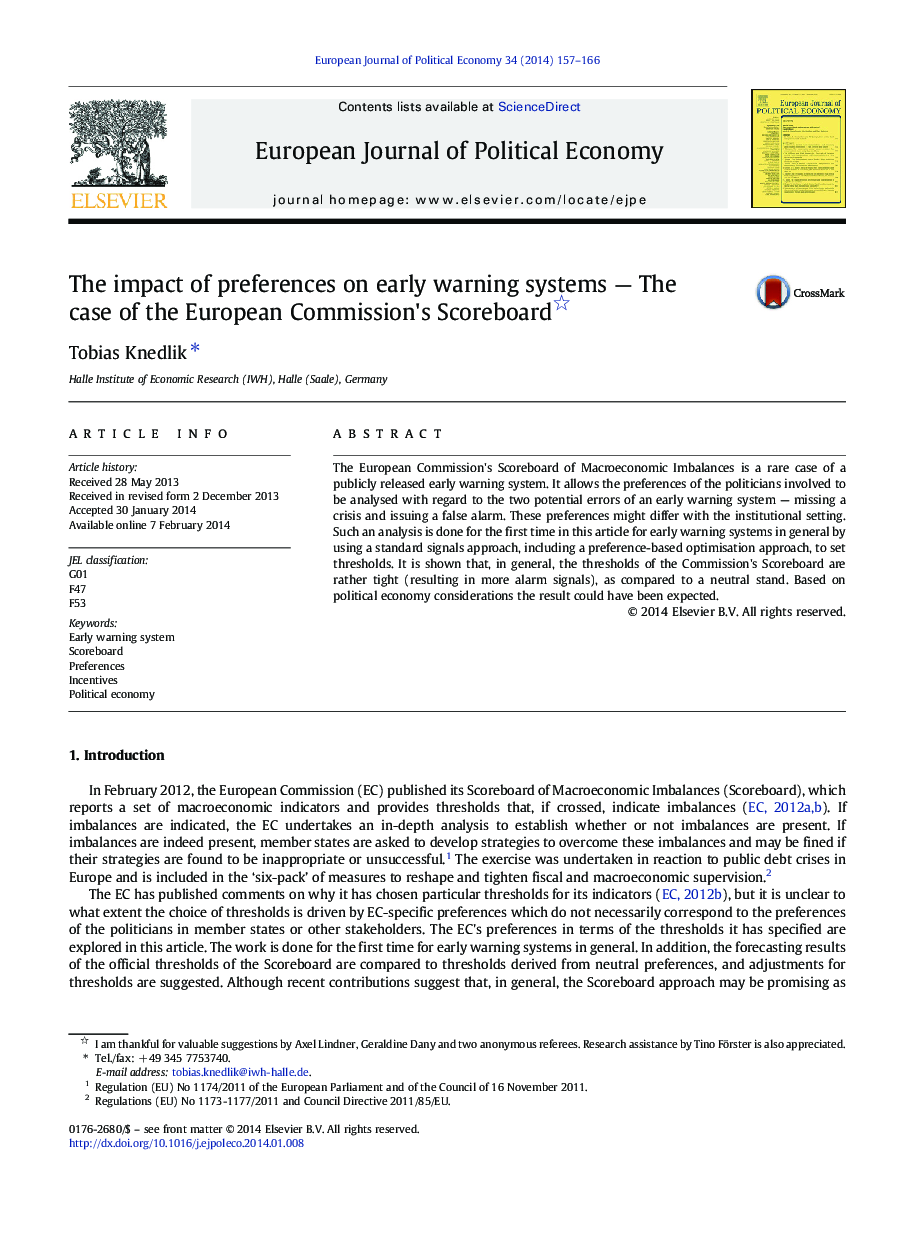| Article ID | Journal | Published Year | Pages | File Type |
|---|---|---|---|---|
| 5068097 | European Journal of Political Economy | 2014 | 10 Pages |
â¢Thresholds in early warning systems depend on preferences of politicians.â¢Preferences might be different for different politicians depending on institutions.â¢Preferences are uncovered in this paper for the first time.â¢Results show that the European Commission sets thresholds relatively low.â¢Findings are in line with a hypothesis derived from institutional setting.
The European Commission's Scoreboard of Macroeconomic Imbalances is a rare case of a publicly released early warning system. It allows the preferences of the politicians involved to be analysed with regard to the two potential errors of an early warning system - missing a crisis and issuing a false alarm. These preferences might differ with the institutional setting. Such an analysis is done for the first time in this article for early warning systems in general by using a standard signals approach, including a preference-based optimisation approach, to set thresholds. It is shown that, in general, the thresholds of the Commission's Scoreboard are rather tight (resulting in more alarm signals), as compared to a neutral stand. Based on political economy considerations the result could have been expected.
